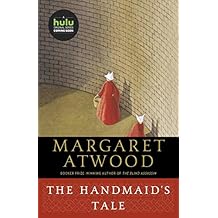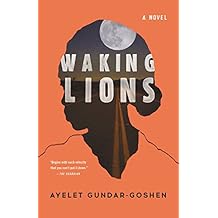
It's been a year this week since I picked up my free copy of "Here I Am" by Jonathan Safran Foer in Chicago at Book Expo. I've been lugging it back and forth from Maryland to Florida and back again and I may not have gotten to it at all if I hadn't just reviewed "Forest Dark," the much awaited new novel by Nicole Krauss who just happens to be Foer's former wife.
I was surprised and a bit disappointed that Krauss felt she had to address her failed relationship with Foer in her new work - a work of fiction, I might add. So imagine my shock when I dipped into Foer's novel and discovered that he had mined the same territory but on steroids!
I had a love/hate relationship with this book. I have a tendency to believe that the generation behind mine is just too damn open for their own good. Yes, yes, common wisdom says you should write what you know, but really? If you want your readers to get that deep inside your marriage then pen a memoir, but don't couch your story in a novel and pass it off as fiction. It's as if both Foer and Krauss were analyzing their failures and expecting the readers to act as psychologists. Too much work!
Nevertheless, the writing itself is brilliant, insightful, and though painfully personal, spot on. Foer is not afraid to say out loud what most of us probably think but would never utter. The action takes place over just four weeks in the household of the Blochs, Julia, Jacob, and their three delightfully precocious boys. In fact, spending time with Sam, Max, and Benji is the height of reading pleasure.
The Blochs are planning Sam's bar mitzvah, a ceremony that they feel is important for their families even though Sam is vocally against it and appears to have no deep feeling for his Jewish heritage. This is a boy who keeps his emotions closely guarded and is more himself when hiding behind an avatar in the computer world of Second Life.
A tech savvy nerd, Sam has discovered that his dad keeps a second cell phone, one that Sam easily breaks into, only to find that his father is in a sexting relationship with a woman from work. Sam decides to make sure that his mom finds the phone and sets in motion the dissolution of a marriage in which the parties have only been going through the motions for a long time.
As Jacob works through his sense of loss and guilt, he reflects on his life as a son, grandson, father, husband, and Jew. How, he wonders, can allegiances be spread so thin? How does a man pursue his own career while juggling life's enormous responsibilities and tentacles? Of course, this is the existential question. Some of us just buck up and do it. We don't have the luxury of time or money that's required to delve too deeply into unanswerable questions.
With Tamir, a cousin visiting from Israel, Jacob has long, endless, discussions about the hypocrisy of American Jews who talk fondly of the homeland they've never visited, sending money for a tree to be planted in memoriam, but afraid of getting too close. There's much truth and ironic humor in these chapters but some readers may decide that they go on for just a little too long.
This is a novel that one senses was written in despair, laden with angst, and bogged down in selfishness. But ultimately it works as an exercise in catharsis for the writer. For the reader it is a deep dark look into the workings of an author's mind as he tries to move forward by looking back.



